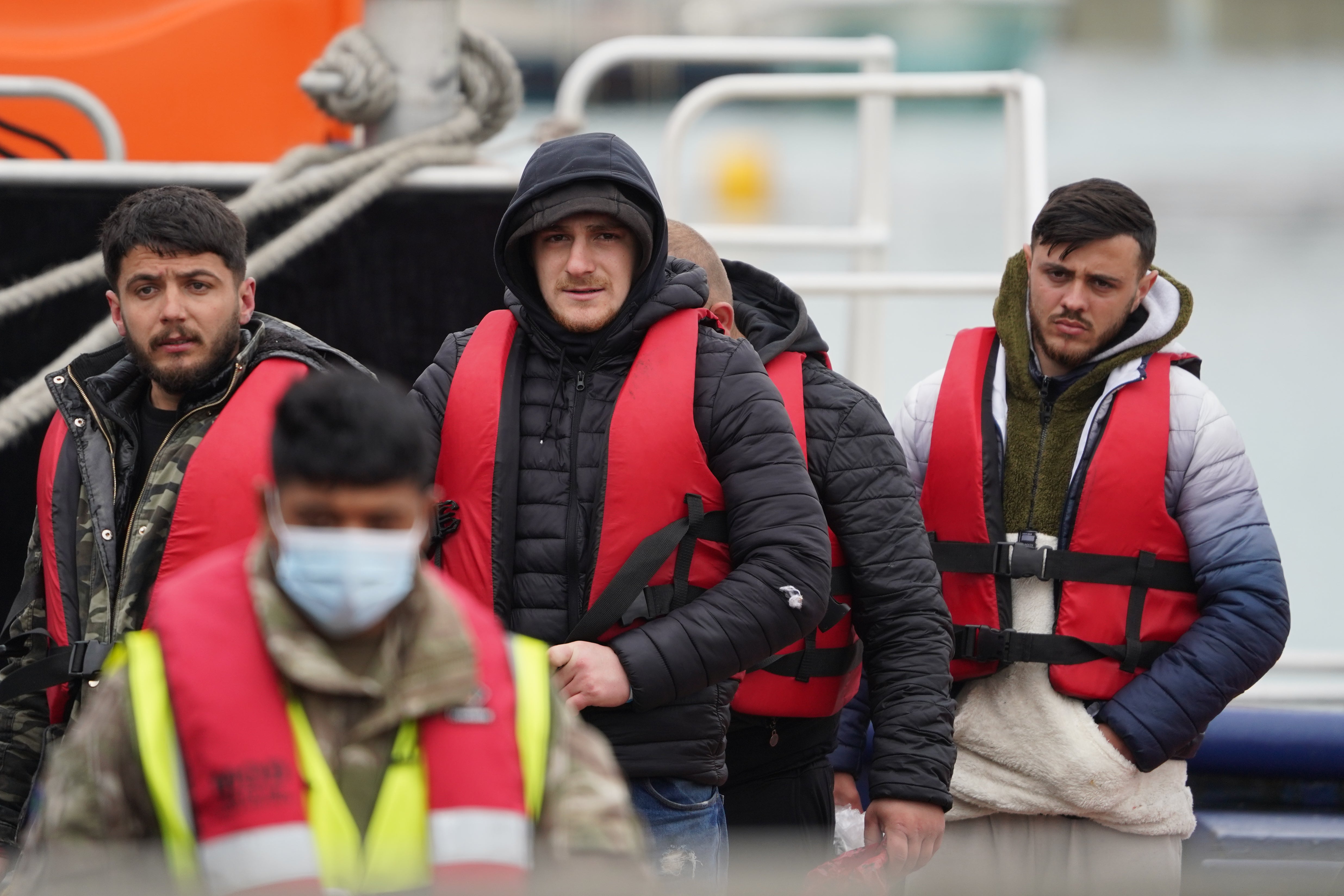Tough rhetoric on Channel crossings is having little effect as numbers swell
The effectiveness of government policy is under scrutiny almost two years after Priti Patel vowed to make the route ‘unviable’, Lizzie Dearden writes

Almost two years after Priti Patel vowed to make small boat crossings “unviable”, tough words do not seem to be having an effect on asylum seekers journeying to the UK.
The home secretary has announced a series of “deterrents” since 2020, including new plans to send migrants to Rwanda, but numbers continue to rise.
On Monday, 293 people arrived on nine small boats, bringing the total to more than 7,000 so far this year. The figure is more than three times the number recorded for the same period in 2021, which was itself a record year.
The figures raise questions over the effectiveness of the government’s strategy to reduce Channel crossings.
While charities, parliamentary committees, experts and even Emmanuel Macron have called on the UK to put alternative routes in place that would minimise the demand for such journeys, the Home Office has instead pursued increasingly punitive policies.
Last year, the home secretary announced that she had authorised Border Force operations to force migrants back into French waters.
The French government said it would not accept such “refoulements” and the stringent operational requirements drawn up to prevent disasters and comply with international law meant that pushbacks never took place.
The policy was dropped by the Home Office without any public announcement last week, days before a legal challenge was to be heard at the High Court.
Politicians had claimed that the very threat of pushbacks would deter those wanting to make Channel crossings, but international media coverage of the plans seemed to have little effect.
The pattern may repeat itself with the Rwanda deal, with Downing Street admitting on Tuesday that no date had been set for deportation flights to start.

The prime minister’s official spokesman said they may take place in “a matter of months”, or at the “earliest opportunity”, and admitted that legal challenges had already been launched.
Refugee charities point out that the Rwanda policy appears to so far have done little to deter people from making the journey to the UK, with 1,972 people arriving between the deal being announced on 14 April and Monday.
When asked if Mr Johnson was disappointed the plan was yet to curb crossing numbers, the spokesman said: “It's too early to judge what the situation will be long-term on this policy.”
That may be true, but much more time has passed since the announcement of other vaunted “deterrents”.
Little seems to have changed following the pushbacks that never happened, the navy’s new “primacy” in the Channel, or previous initiatives like the appointment of a “clandestine Channel threat commander”.
Ministers are now pinning their hopes on the Rwanda deal and the newly-passed Nationality and Borders Act, which criminalises refugees who arrive without official permission.
The government claims it will “deter illegal entry into the United Kingdom, thereby breaking the business model of people smuggling networks”, but the Home Office’s own impact assessment warns: “Evidence supporting the effectiveness of this approach is limited.”







Join our commenting forum
Join thought-provoking conversations, follow other Independent readers and see their replies
Comments